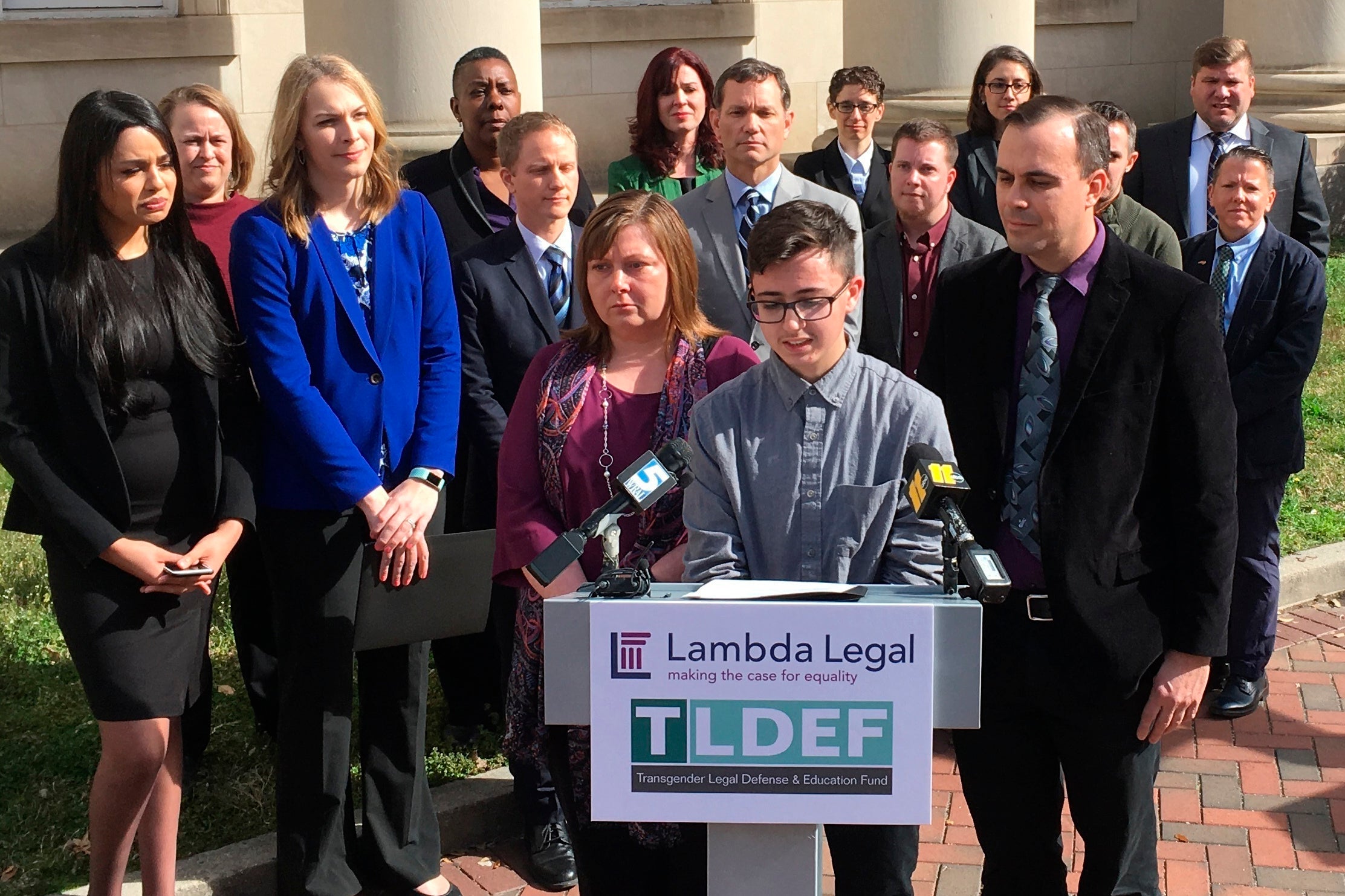West Virginia and North Carolina's transgender care coverage policies discriminate, judges rule
A federal appeals court has ruled that West Virginia and North Carolina’s refusal to cover certain health care for transgender people with government-sponsored insurance is discriminatory

Your support helps us to tell the story
From reproductive rights to climate change to Big Tech, The Independent is on the ground when the story is developing. Whether it's investigating the financials of Elon Musk's pro-Trump PAC or producing our latest documentary, 'The A Word', which shines a light on the American women fighting for reproductive rights, we know how important it is to parse out the facts from the messaging.
At such a critical moment in US history, we need reporters on the ground. Your donation allows us to keep sending journalists to speak to both sides of the story.
The Independent is trusted by Americans across the entire political spectrum. And unlike many other quality news outlets, we choose not to lock Americans out of our reporting and analysis with paywalls. We believe quality journalism should be available to everyone, paid for by those who can afford it.
Your support makes all the difference.West Virginia and North Carolina's refusal to cover certain health care for transgender people with government-sponsored insurance is discriminatory, a federal appeals court ruled Monday in a case likely headed to the U.S. Supreme Court.
The Richmond-based 4th U.S. Circuit Court of Appeals ruled 8-6 in the case involving coverage of gender-affirming care by North Carolina’s state employee health plan and the coverage of gender-affirming surgery by West Virginia Medicaid.
“The coverage exclusions facially discriminate on the basis of sex and gender identity, and are not substantially related to an important government interest,” Judge Roger Gregory, appointed by former U.S. President George W. Bush, wrote in the majority opinion.
The ruling follows a decision earlier this month by 4th Circuit judges that West Virginia's transgender sports ban violates the rights of a teen athlete under Title IX, the federal civil rights law that prohibits sex-based discrimination in schools.
Like with the transgender sports law ruling, West Virginia Attorney General Patrick Morrisey said his office planned to appeal Wednesday's health care case decision.
“Decisions like this one, from a court dominated by Obama- and Biden-appointees, cannot stand: we’ll take this up to the Supreme Court and win,” Morrisey said in a statement.
After the ruling, West Virginia plaintiff Shauntae Anderson, a Black transgender woman and West Virginia Medicaid participant, called her state's refusal to cover her care “deeply dehumanizing.”
"I am so relieved that this court ruling puts us one step closer to the day when Medicaid can no longer deny transgender West Virginians access to the essential healthcare that our doctors say is necessary for us,” Anderson said in a statement.
A spokesperson for North Carolina State Treasurer Dale Folwell, whose department oversees the state's health plan, said the agency was still reviewing the decision Monday but would have a response later. The plan covers than 750,000 teachers, state employees and teachers, retirees and dependents.
During oral arguments in September, at least two judges said it’s likely the case will eventually reach the U.S. Supreme Court. Both states appealed separate lower court rulings that found the denial of gender-affirming care to be discriminatory and unconstitutional. Two panels of three Fourth Circuit judges heard arguments in both cases last year before deciding to intertwine the two cases and see them presented before the full court.
In June 2022, a North Carolina trial court demanded the state plan pay for “medically necessary services,” including hormone therapy and some surgeries, for transgender employees and their children. The judge had ruled in favor of the employees and their dependents, who said in a 2019 lawsuit that they were denied coverage for gender-affirming care under the plan.
The North Carolina state insurance plan provides medical coverage for more than 750,000 teachers, state employees, retirees, lawmakers and their dependents. While it provides counseling for gender dysphoria and other diagnosed mental health conditions, it does not cover treatment “in connection with sex changes or modifications and related care.”
In August 2022, a federal judge ruled West Virginia’s Medicaid program must provide coverage for gender-affirming care for transgender residents.
An original lawsuit filed in 2020 also named state employee health plans. A settlement with The Health Plan of West Virginia Inc. in 2022 led to the removal of the exclusion on gender-affirming care in that company’s Public Employees Insurance Agency plans.